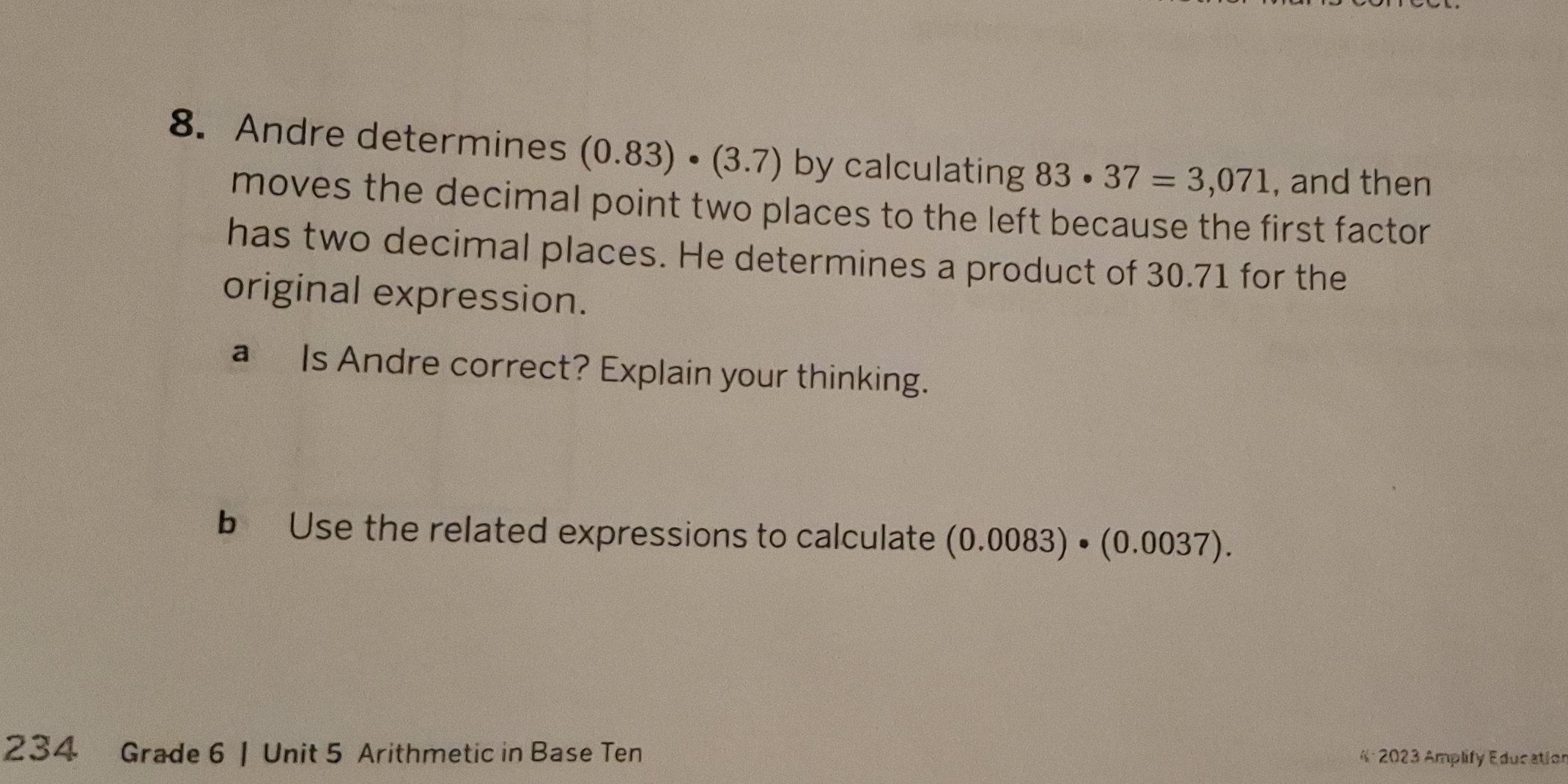Andre determines (0.83) · (3.7) by calculating 83 · 37 = 3,071, and then moves the decimal point two places to the left because the first factor has two decimal places. He determin... Andre determines (0.83) · (3.7) by calculating 83 · 37 = 3,071, and then moves the decimal point two places to the left because the first factor has two decimal places. He determines a product of 30.71 for the original expression. a) Is Andre correct? Explain your thinking. b) Use the related expressions to calculate (0.0083) · (0.0037).

Understand the Problem
The question involves a student named Andre, who attempts to calculate the product of two decimal numbers. Part 'a' asks whether Andre's method is correct and requires an explanation, while part 'b' involves calculating a related expression with different decimal values.
Answer
Andre is correct; the product of $(0.0083) \cdot (0.0037)$ is $0.00003071$.
Answer for screen readers
Andre's answer for part (a) is correct, and the result of part (b) is $0.00003071$.
Steps to Solve
- Check Andre's Calculation First, we verify Andre's calculation of $0.83 \cdot 3.7$.
Calculate $83 \cdot 37$: $$ 83 \cdot 37 = 3071 $$
Next, we need to adjust for the decimals.
$0.83$ has 2 decimal places and $3.7$ has 1 decimal place, so together they have $2 + 1 = 3$ decimal places to move.
Now, we place the decimal point in $3071$: $$ 30.71 $$
-
Determine if Andre is Correct Andre correctly calculated the product $0.83 \cdot 3.7$. The product is indeed $30.71$, so Andre is correct in his calculation.
-
Calculating the Second Part Now, calculate the expression $(0.0083) \cdot (0.0037)$.
Rewrite the decimals as fractions: $$ (0.0083) = \frac{83}{10000}, \quad (0.0037) = \frac{37}{10000} $$
Multiply them: $$ (0.0083) \cdot (0.0037) = \left(\frac{83}{10000}\right) \cdot \left(\frac{37}{10000}\right) = \frac{83 \cdot 37}{10000 \cdot 10000} $$
Now calculate $83 \cdot 37$ again: $$ 83 \cdot 37 = 3071 $$
Now substitute back to find: $$ (0.0083) \cdot (0.0037) = \frac{3071}{100000000} $$
Finally, moving the decimal point gives: $$ 0.00003071 $$
Andre's answer for part (a) is correct, and the result of part (b) is $0.00003071$.
More Information
- The multiplication of decimal numbers involves adjusting the decimal point based on the total number of decimal places in the factors.
- The calculations help illustrate how multiplying small decimals can result in even smaller values.
Tips
- A common mistake is to miscount the total number of decimal places when adjusting the decimal point in the final product. To avoid this, always add the decimal places from both numbers together.
AI-generated content may contain errors. Please verify critical information